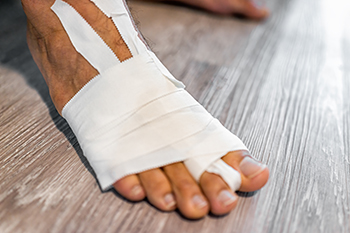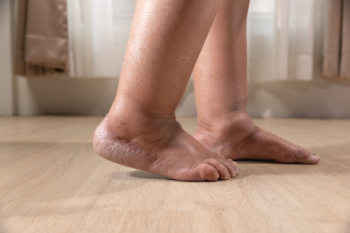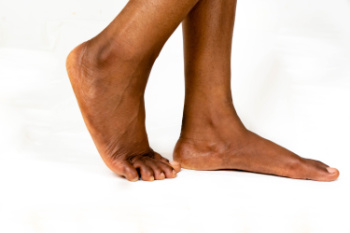
Big toe joint pain is common among pickleball players due to the quick pivots, lunges, and bursts of movement required in the game. One frequent cause is turf toe, which occurs when the big toe is forced upward, straining the ligaments around the joint. Symptoms include swelling, pain, stiffness, and difficulty pushing off while moving. Risk factors include playing on hard surfaces, wearing unsupportive shoes, and repetitive stress on the forefoot. A podiatrist can evaluate the injury, provide treatment to relieve pain, and recommend footwear or orthotics to prevent future problems. Do not let toe pain sideline you from the court. If you have toe pain from playing pickleball, it is suggested that you promptly consult a podiatrist who can offer effective relief and treatment solutions, allowing you to resume playing this popular game.
Ankle and foot injuries are common among athletes and in many sports. They can be caused by several problems and may be potentially serious. If you are feeling pain or think you were injured in a sporting event or when exercising, consult with one of our doctors from Advanced Foot & Ankle Medical Center. Our doctors will assess your condition and provide you with quality foot and ankle treatment.
Common Injuries
The most common injuries that occur in sporting activities include:
- Achilles Tendonitis
- Achilles Tendon Rupture
- Ankle Sprains
- Broken Foot
- Plantar Fasciitis
- Stress Fractures
- Turf Toe
Symptoms
Symptoms vary depending upon the injury and in some cases, there may be no symptoms at all. However, in most cases, some form of symptom is experienced. Pain, aching, burning, bruising, tenderness, tightness or stiffness, sensation loss, difficulty moving, and swelling are the most common symptoms.
Treatment
Just as symptoms vary depending upon the injury, so do treatment options. A common treatment method is known as the RICE method. This method involves rest, applying ice, compression and elevating the afflicted foot or ankle. If the injury appears to be more serious, surgery might be required, such as arthroscopic or reconstructive surgery. Lastly, rehabilitation or therapy might be needed to gain full functionality in the afflicted area. Any discomfort experienced by an athlete must be evaluated by a licensed, reputable medical professional.
If you have any questions please contact our offices located in Agoura Hills, Simi Valley, Thousand Oaks Marin St., and Thousand Oaks Haaland Drive, CA . We offer the newest diagnostic and treatment technologies for all your foot and ankle needs.


